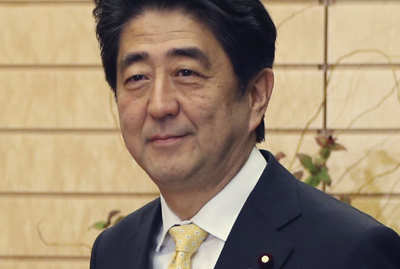 TOKYO: Japan will hold a general election this weekend that looks likely to return Prime Minister Shinzo Abe to power and might even give him the momentum to press ahead with badly-needed structural changes.
TOKYO: Japan will hold a general election this weekend that looks likely to return Prime Minister Shinzo Abe to power and might even give him the momentum to press ahead with badly-needed structural changes.
Billed by the premier as a referendum on "Abenomics" -- his signature plan to fix the economy -- observers expect he will barely break a sweat in an easy victory.
Opinion polls predict the ruling Liberal Democratic Party (LDP) and its junior partner Komeito will sweep Sunday's ballot, all but unhindered by an unprepared and underwhelming opposition.
"Abe's expected victory is the result of the self-destruction of the opposition," said Shinichi Nishikawa, professor of politics at Meiji University in Tokyo.
"For many voters, there is no alternative but the LDP," Nishikawa said.
According to a poll published by the Asahi Shimbun on Thursday, the coalition will secure 317 of the 475 seats, giving them the super-majority they need in the powerful lower house to force through legislation.
The DPJ, whose haphazard governance over the three years until 2012 left voters cold, could add a couple of dozen more seats to its tally of 62, but will remain ineffective, the opinion poll showed.
Sixty-year-old Abe still had more than two years left on the clock when he called the vote last month.
His two years in power have been characterised by a bid to reinvigorate Japan's sagging economy with what he has called the "three arrows" of Abenomics -- monetary easing, fiscal stimulus and structural changes.
The first two arrows have largely hit their target -- the once-painfully high yen has plunged, sending stocks higher.
Prices have begun rising after years of standing still, proof, say Abe's boosters that this is the beginning of a virtuous circle of economic growth, with higher wages soon to follow.
But the reform arrow remains in the quiver; critics say Abe has not been bold enough to take on the vested interests that are the real key to reversing nearly two decades of economic underperformance.
"A victory by the LDP will be regarded as a positive factor for the Japanese economy in the short term," said Takahiro Sekido, Japan economist at the Bank of Tokyo-Mitsubishi UFJ.
"But painful reforms are still ahead, including efforts to achieve sound public finance" and handle strong opposition from farm lobbies that have stalled talks on a huge Pacific-wide free trade deal, Sekido said.
























Comments
Comments are closed.